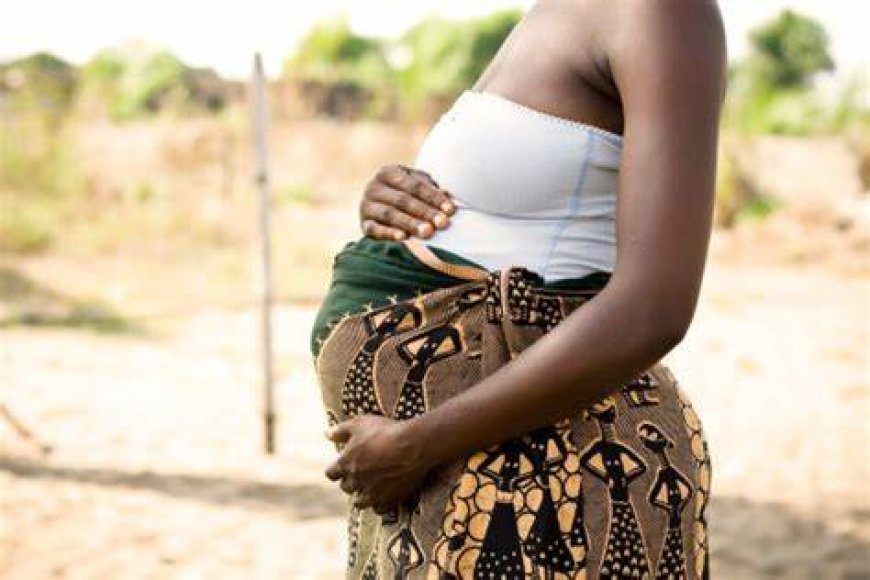New drug unveiled to reduce malarial rates among pregnant women

Kisumu,
Wednesday, January 17, 2024
KNA by Joseph Ouma and Rolex Omondi
The Kenya Medical Research Institute (KEMRI) and research partners have unveiled a major health study milestone on a new drug able to reduce malaria rates among pregnant women living with HIV.
KEMRI Ag. Director General, Prof. Elijah Songok said the published results positively indicate that the new drug has very good potential to prevent malaria during pregnancy for HIV-positive women.
Prof. Songok expressed his satisfaction during the release of the study Tuesday 16, 2024 adding; “we celebrate these findings that propose an additional arsenal against a disease that risks about 70 per cent of our population.”
He explained that malaria in pregnancy can cause a host of serious health complications, including; miscarriage, stillbirth, pre-term delivery and growth restriction of newborn babies and co-infection with HIV increases these risks.
In this latest study, Prof. Songok added, a series of trials coordinated by the Liverpool School of Tropical Medicine (LSTM), the Kamuzu University of Health Sciences, and the Malawi University of Science and Technology found that malaria during pregnancy can cause serious maternal and newborn health issues, especially in women living with HIV.
However, the study christened, “IMPROVE-2,” and published in The Lancet suggests that the addition of the antimalarial drug dihydroartemisinin–piperaquine to daily co-trimoxazole significantly reduces the risk of malaria in pregnancy.
It further explored alternative options to prevent malaria in pregnant women without HIV, which established that out of several antimalarials, dihydroartemisinin–piperaquine was the only one tolerated well enough to be considered for malaria prevention.
“Until now, no suitable alternative preventive treatment has been identified for pregnant women living with HIV. The currently recommended treatment for malaria prevention in pregnant women living with HIV is a daily dose of co-trimoxazole, an antibiotic prescribed to prevent opportunistic infections in HIV patients as it also has antimalarial properties,’’ the report stated.
To safeguard the precious lives of expectant women residing in areas with high malaria transmission, the World Health Organization (WHO) recommends daily doses of the antibiotic co-trimoxazole.
However, Prof Songok is a worried man arguing that “the efficacy levels of co-trimoxazole in sub–Saharan Africa is threatened because malaria parasites are becoming increasingly resistant to the drug.’’
This confirms the WHO 2017 position that daily unsupervised co-trimoxazole provided only partial protection against malaria for women living with HIV in areas with high-grade resistance and highlighted the need for research of new strategies for malaria prevention in pregnancy.
WHO reports that 25 million pregnant women are highly at risk for malaria, and the disease accounts for over 10,000 maternal and 200,000 neonatal deaths annually.
The global health body further indicates that approximately 39 million (33.1-45.7 million) people were living with HIV in 2022. This translates to 37.5 million adults, 1.5 million children (below 15 years) and 53 percent accounted for women and girls.
The National Syndemic Diseases Control Council (NSDCC) report in 2016 stated that women accounted for 910,000 of the 1.6 million people living with HIV in Kenya. Similarly, reports from the Centre for Disease Control (CDC), estimate that 3.5 million new clinical cases and 10,700 deaths each year, and those living in Western Kenya are highly at risk of malaria.
In a related study, the Kenya Malaria Indicator Survey (2020 KMIS) stated that malaria is a significant health problem in Kenya with more than 70 percent of the population being at risk of malaria, including those vulnerable to the disease, specifically children and pregnant women.
The 2020 KMIS findings point out that the high-risk levels include 13 million people in malaria-endemic areas (lake and coastal regions), and another 19 million in highland epidemic-prone areas (lies 1,500 metres above sea level), and seasonal transmission areas.
Prof. Feiko Kuile of Tropical Epidemiology at LSTM and the study lead observed that the findings are promising and potentially a piece of welcoming news in the future of malaria prevention among pregnant women living with HIV in areas where the prevalence of the disease is high.
Prof. Kuile reiterated that based on their trial outcomes, pregnant women living with HIV who received the combination of monthly dihydroartemisinin–piperaquine to daily co-trimoxazole had 68 percent less malaria during pregnancy than those who got the standard daily co-trimoxazole alone.
Researchers enrolled 904 women into the trial and randomly assigned them to each group. They were assessed as to whether the addition of monthly dihydroartemisinin–piperaquine to daily co-trimoxazole is more effective at preventing malaria infection than a monthly placebo plus daily co-trimoxazole in women living with HIV.
These findings are very encouraging as we not only found the addition was safe and prevented two out of every three malaria infections during pregnancy, but it was also very well tolerated by pregnant women, which is very important when a drug is given for prevention.
This is according to Dr. Hellen Barsosio, a Clinical Research Scientist from the KEMRI’s Centre for Global Health Research (CGHR), and lead author on the new paper published in The Lancet. The study could lead to a much-needed policy change that could make a real difference in improving maternal and newborn health in Africa, she explained.
Among those involved were investigators from the University of Copenhagen, and the CDC (Atlanta –USA). It was funded through the European and Developing Countries Clinical Trials Partnership (EDCTP2) programme.
This was achieved through a joint initiative of the UK Foreign, Commonwealth and Development Office, Medical Research Council, National Institute for Health Research, Wellcome Trust, and the Swedish International Development Cooperation Agency.
“We hope that these findings, along with a similar trial being conducted in Gabon and Mozambique, will inform the malaria prevention guidelines from WHO and national health policies,” reassured Dr. Simon Kariuki, KEMRI-CGHR Head of Malaria Program.
Courtesy; KNA
What's Your Reaction?
































































































































































































































































































